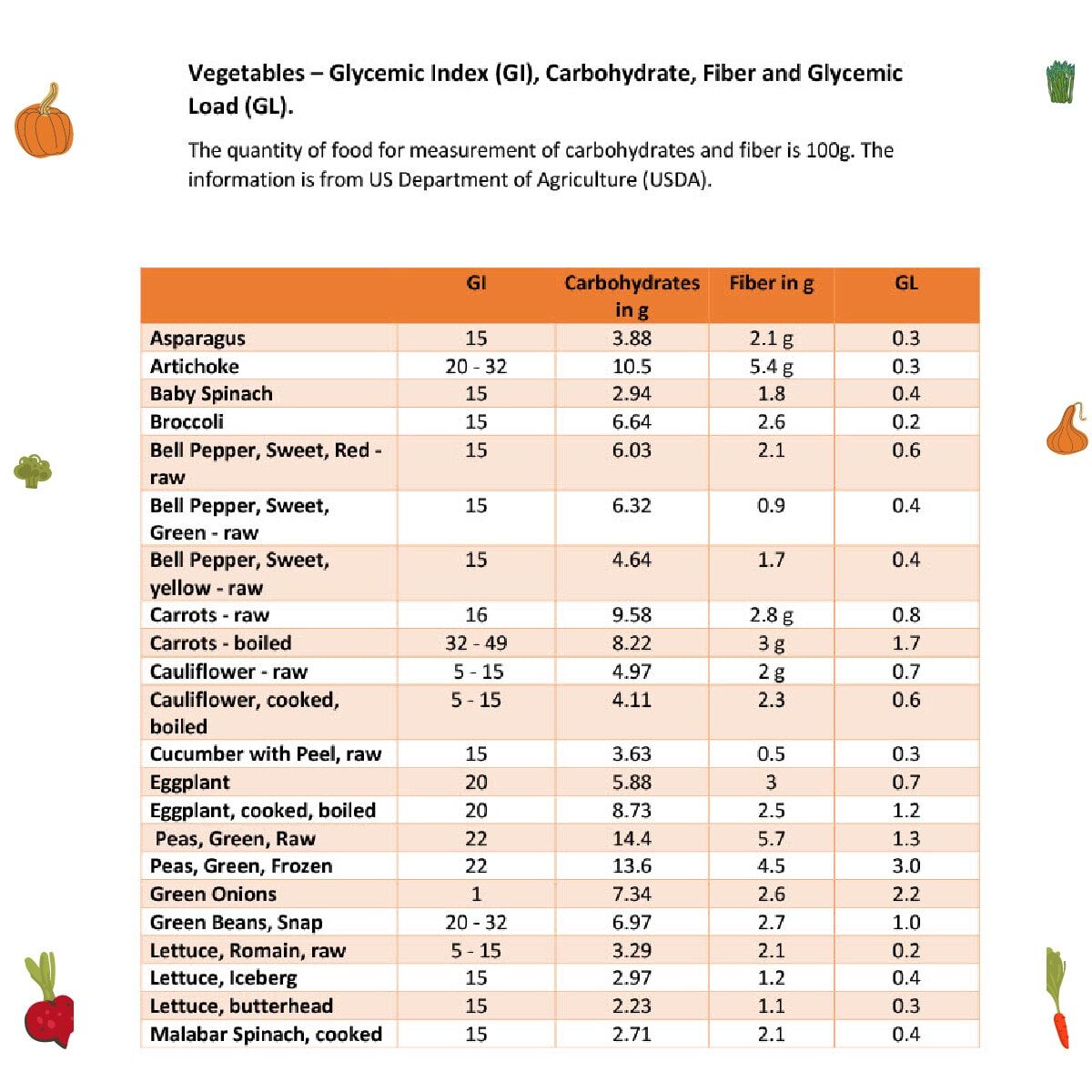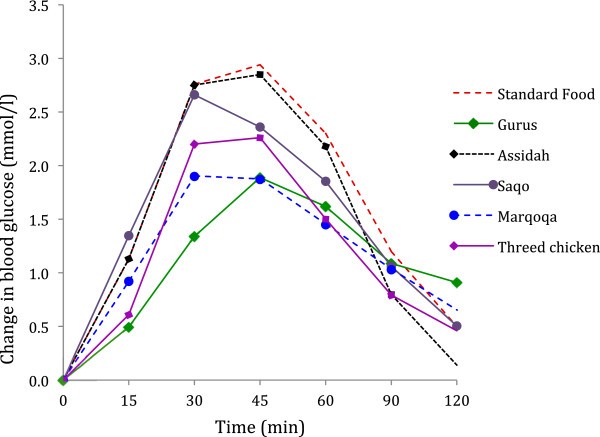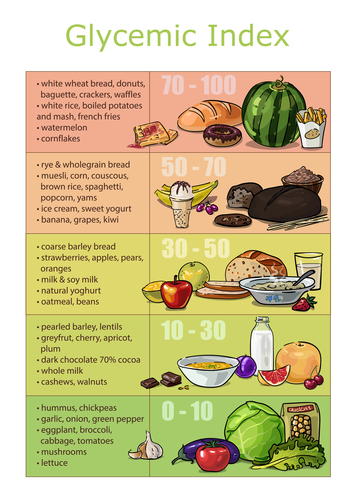Introduction

The introduction section serves to provide an overview of the topic at hand, namely, the impact of chicken on blood sugar levels. It explains the relevance of the glycemic index, which measures how different foods affect blood sugar levels. With an understanding of the glycemic index, individuals can make informed choices about their diet and effectively manage their blood sugar levels. This section also highlights the importance of exploring the specific glycemic index of chicken and how factors such as cooking methods and seasonings can influence its impact on blood sugar.
Overview Of The Glycemic Index And Its Relevance In Managing Blood Sugar Levels
The glycemic index is a measure that ranks foods based on how they affect blood sugar levels. It provides valuable information for individuals managing their blood sugar, as foods with a high glycemic index can cause a rapid increase in blood sugar levels, while those with a low glycemic index have a slower and more sustained impact. By choosing foods with a lower glycemic index, individuals can better manage their blood sugar levels and reduce the risk of spikes and crashes. This is especially important for individuals with diabetes or those trying to maintain stable blood sugar levels.
Understanding The Impact Of Different Foods On Blood Sugar Levels
Different foods have varying effects on blood sugar levels. Carbohydrates, especially those with a high glycemic index, tend to cause a rapid increase in blood sugar levels. This is because they are quickly broken down into glucose during digestion. Foods that are high in refined sugars, such as sugary drinks and desserts, can cause a sharp spike in blood sugar levels. On the other hand, foods that are high in fiber, protein, and healthy fats have a slower and more steady impact on blood sugar levels. These include whole grains, fruits, vegetables, lean proteins like chicken, and sources of healthy fats like nuts and avocado. By incorporating a balanced mix of these foods into meals, individuals can better manage their blood sugar levels and maintain stable energy throughout the day.
What Is The Glycemic Index?

The glycemic index (GI) is a measurement system that ranks carbohydrates based on how they affect blood sugar levels. It provides information about how quickly a particular food increases blood sugar levels compared to pure glucose, which has a GI value of 100. Foods with a high GI cause a rapid increase in blood sugar levels, while those with a low GI have a slower and more gradual impact. The GI is particularly relevant for individuals with diabetes or those looking to manage their blood sugar levels. It helps guide food choices and meal planning to maintain stable blood sugar levels throughout the day.
Definition And Explanation Of The Glycemic Index
The glycemic index (GI) is a measurement system that ranks carbohydrates based on how they affect blood sugar levels. It provides information about how quickly a particular food increases blood sugar levels compared to pure glucose, which has a GI value of 100. Foods with a high GI cause a rapid increase in blood sugar levels, while those with a low GI have a slower and more gradual impact. The GI is particularly relevant for individuals with diabetes or those looking to manage their blood sugar levels. It helps guide food choices and meal planning to maintain stable blood sugar levels throughout the day.
How The Glycemic Index Is Measured And Categorized
The glycemic index (GI) is measured by comparing the blood sugar response to a specific amount of carbohydrates from a test food to the same amount of carbohydrates from a reference food, usually pure glucose. The test subjects consume the test food, and their blood sugar levels are monitored over a period of time. The resulting blood sugar response is then compared to that of the reference food, which is assigned a GI value of 100. Foods are categorized into three GI categories: low (GI less than or equal to 55), medium (GI between 56 and 69), and high (GI greater than or equal to 70). This categorization helps individuals make informed food choices based on their impact on blood sugar levels.
How Does Chicken Affect Blood Sugar?

Including chicken in a meal is unlikely to significantly raise blood sugar levels, especially when consumed without added sugars or high-carb ingredients. Chicken is a lean source of protein, which does not have a significant impact on blood sugar levels. However, the way chicken is prepared and cooked can affect its glycemic index and subsequent impact on blood sugar. It is important to consider portion sizes and cooking methods when incorporating chicken into a balanced diet for blood sugar management. The glycemic index and overall composition of the meal, including other ingredients, should also be taken into account.
Exploring The Glycemic Index Of Chicken And Its Impact On Blood Sugar Levels
The glycemic index (GI) measures how quickly and how much a food raises blood sugar levels. Chicken, being a lean source of protein, generally has a low GI and does not have a significant impact on blood sugar levels. However, the GI of chicken can vary depending on factors such as cooking methods and portion sizes. Grilled or baked chicken has a lower GI compared to fried or breaded chicken. It is important to consider the overall composition of the meal and other ingredients to effectively manage blood sugar levels.
Comparing The Glycemic Index Of Different Chicken Products
When it comes to the glycemic index (GI) of chicken products, it’s important to consider variations depending on the specific product. Skinless, boneless chicken breast is known to have a relatively low GI. On the other hand, processed chicken products such as chicken nuggets or breaded chicken tend to have a higher GI due to the added ingredients and cooking methods involved. It’s always best to choose lean, unprocessed chicken options to keep blood sugar levels stable. Chicken products with added sauces or marinades may also have a higher GI, so it’s important to check the nutritional information and choose wisely.
Factors That Influence The Glycemic Index Of Chicken

Several factors can influence the glycemic index of chicken. One significant factor is the cooking method used. For example, grilling or baking chicken tends to have a lower glycemic index compared to frying or breading it. The addition of sauces, marinades, or seasonings can also affect the glycemic index. Chicken with added sugars or high-carb ingredients may have a higher glycemic index. Additionally, the portion size of chicken consumed can impact blood sugar levels. It’s important to choose lean, unprocessed chicken options and be mindful of cooking methods and portion sizes to maintain stable blood sugar levels.
Cooking Methods And Their Effect On The Glycemic Index Of Chicken
Various cooking methods can have an impact on the glycemic index of chicken. Grilling or baking chicken tends to result in a lower glycemic index compared to frying or breading it. The high heat of grilling or baking helps to maintain the integrity of the proteins in the chicken, preventing them from breaking down and releasing sugars into the bloodstream. On the other hand, frying or breading chicken can increase the glycemic index as these methods often involve the use of oils or high-carb coatings. Choosing healthier cooking methods like grilling or baking can help to minimize the impact of chicken on blood sugar levels.
Marinades, Seasonings, And Their Impact On Blood Sugar Levels
Marinades and seasonings can add flavor to chicken but it’s important to consider their impact on blood sugar levels. Some marinades and seasonings may contain added sugars or high-carb ingredients which can increase the glycemic index of the chicken. It’s advisable to choose marinades and seasonings that are low in added sugars or opt for homemade versions using herbs, spices, and vinegar. These options can add flavor without significantly raising blood sugar levels. Being mindful of the ingredients in marinades and seasonings can help maintain blood sugar control while enjoying flavorful chicken dishes.
The Role Of Protein In Blood Sugar Management

Protein plays a crucial role in blood sugar management. When consumed, protein is broken down into amino acids, which are used by the body for various functions. One important function of protein is its ability to slow down the digestion and absorption of carbohydrates, resulting in a slower rise in blood sugar levels after a meal. This can be beneficial for individuals with diabetes or those looking to maintain stable blood sugar levels. Additionally, protein provides a feeling of satiety, helping to curb overeating and control appetite. Including protein-rich sources such as chicken in a balanced diet can contribute to effective blood sugar management.
Understanding The Effects Of Protein On Blood Sugar Levels
Protein plays a crucial role in blood sugar management. When consumed, protein is broken down into amino acids, which are used by the body for various functions. One important function of protein is its ability to slow down the digestion and absorption of carbohydrates, resulting in a slower rise in blood sugar levels after a meal. This can be beneficial for individuals with diabetes or those looking to maintain stable blood sugar levels. Additionally, protein provides a feeling of satiety, helping to curb overeating and control appetite. Including protein-rich sources such as chicken in a balanced diet can contribute to effective blood sugar management.
Examining The Protein Content Of Chicken And Its Potential Benefits
Chicken is a rich source of high-quality protein, making it an excellent choice for blood sugar management. A 3-ounce serving of chicken breast provides about 26 grams of protein. Protein plays a crucial role in stabilizing blood sugar levels by slowing down the digestion and absorption of carbohydrates. This helps prevent spikes in blood sugar after meals, promoting better glycemic control. Additionally, protein-rich foods like chicken can promote satiety, keeping you fuller for longer and reducing the risk of overeating or snacking on high-sugar foods. Including chicken in a balanced diet can be beneficial for maintaining stable blood sugar levels.
Conclusion

In conclusion, the impact of chicken on blood sugar levels can vary based on several factors such as cooking methods and portion sizes. While chicken is a lean source of protein and generally considered a healthy food choice, it is important to consider its glycemic index and overall nutritional balance when managing blood sugar levels. Including a range of vegetables, whole grains, and legumes alongside chicken can ensure a well-rounded and nutrient-rich meal. With careful consideration of portion sizes and preparation methods, chicken can be a beneficial addition to a balanced diet for blood sugar management.
Summary Of The Findings Regarding The Impact Of Chicken On Blood Sugar Levels
Chicken is a lean source of protein and has a low glycemic index value. Consuming plain chicken without added sugars or high-carb ingredients is unlikely to significantly raise blood sugar levels. However, cooking methods and portion sizes may affect the glycemic response of chicken. Breading, frying, or adding sugary marinades may increase the glycemic index. It is important to consider the overall nutritional balance of a meal and include a variety of vegetables, whole grains, and legumes alongside chicken to manage blood sugar effectively. Regular monitoring of blood sugar levels and individual metabolism should also be taken into account.
Tips For Incorporating Chicken Into A Balanced Diet For Blood Sugar Management
When incorporating chicken into a balanced diet for blood sugar management, here are some tips to keep in mind:
- Opt for lean cuts of chicken, such as skinless breast or thigh meat, to minimize the intake of saturated fats.
- Choose healthier cooking methods, such as grilling, baking, or steaming, instead of frying, to avoid adding unnecessary fats and calories.
- Serve chicken alongside a variety of non-starchy vegetables, like leafy greens, broccoli, or peppers, to increase fiber intake and promote better blood sugar control.
- Include whole grains, such as brown rice or quinoa, as a side dish to provide complex carbohydrates and improve overall meal balance.
- Avoid sugary marinades or sauces, and instead, use herbs, spices, and natural flavorings to enhance the taste of chicken.
Remember, a balanced diet should not only focus on chicken but also include a variety of other nutrient-rich foods to support overall health and blood sugar management.
Frequently Asked Questions – Does Eating Chicken Raise Blood Sugar?
Q: Does eating chicken cause a spike in blood sugar levels?
A: No, chicken does not typically cause a significant spike in blood sugar levels.
Q: Is chicken a low-carbohydrate option for individuals with diabetes or those monitoring their blood sugar?
A: Yes, chicken is considered a low-carbohydrate food, making it a suitable choice for individuals with diabetes or those watching their blood sugar levels.
Q: What makes chicken a low-glycemic-index food?
A: Chicken is a low-glycemic-index (GI) food because it contains minimal amounts of carbohydrates, which have the most significant impact on blood sugar levels. However, other factors such as cooking methods and added sauces or marinades may affect glycemic response.
Q: Can chicken still affect blood sugar levels if it contains high amounts of added sugars or glazes?
A: Yes, if chicken is prepared with added sugars or glazes, it can potentially affect blood sugar levels. It is essential to check the nutritional information or ask about the ingredients used in the preparation to make an informed choice.
Q: Is it necessary to worry about the glycemic index of chicken if consumed as part of a balanced meal?
A: Generally, when chicken is consumed as part of a balanced meal that includes fiber-rich vegetables, whole grains, and healthy fats, the overall glycemic impact is mitigated. The combination of various food components helps slow down the digestion and absorption of carbohydrates, resulting in a more controlled rise in blood sugar levels.
Q: Are certain cuts of chicken better for blood sugar control than others?
A: Lean cuts of chicken, such as skinless breasts or thighs without excess fat, are generally better for blood sugar control because they have lower fat content and are high in protein. Fatty cuts or dark meat with skin may have a slightly higher fat content, which can slow down digestion and potentially impact blood sugar levels.
Q: Are there any specific cooking methods recommended for blood sugar control when preparing chicken?
A: Baking, grilling, and broiling are generally considered healthier cooking methods for chicken, as they require little to no added fats. These methods retain the natural flavors while minimizing excess oil or butter, which can affect blood sugar levels.
Q: Is it necessary to consult a healthcare professional or nutritionist for personalized dietary advice?
A: If you have diabetes or specific dietary concerns regarding blood sugar control, it is always a good idea to consult with a healthcare professional or a registered dietitian. They can provide individualized advice, taking into account your unique needs, preferences, and medical history.

From At-Home Dinner Parties to Family Reunions to Office Parties, we can cater your next Event!